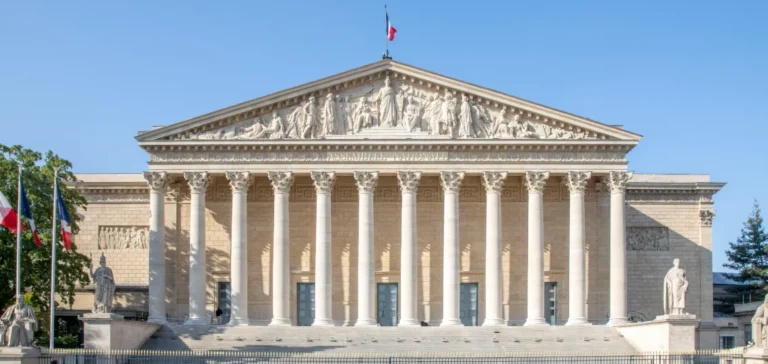The French government has decided to accelerate the legislative process regarding the nation’s energy planning, announcing the anticipated publication of a key decree even before the Parliament concludes its legislative review. This measure, unusual in its timing, explicitly aims to quickly unlock investments in the energy sector. The announcement, made by Marc Ferracci, France’s Minister of Industry, comes in a particularly sensitive economic and industrial context. Reactions from the National Assembly quickly emerged, highlighting deep divisions between the executive branch and a substantial segment of parliamentarians.
Controversy Over Chosen Timeline
Marc Ferracci publicly stated that the decree on the Multiannual Energy Programming (Programmation pluriannuelle de l’énergie – PPE) would be published by the end of the summer. This decision implies an immediate establishment of energy objectives, particularly regarding the proportions of nuclear and renewable energies up to 2035. The government justifies this acceleration by citing an urgent need to provide businesses with a clear regulatory framework to unlock significant investments. Affected businesses closely monitor these debates, anticipating immediate economic impacts once the decree is enacted.
However, this timeline has not satisfied all deputies, including those within the presidential majority. Antoine Armand, a Renaissance deputy and the text’s rapporteur, publicly emphasizes the critical importance of adhering to traditional legislative processes. He argues that the National Assembly must provide its approval before any regulatory decisions are made on such a strategic issue. This viewpoint is shared by several other majority deputies, highlighting an unusual rift between the executive branch and a part of its own parliamentary camp.
Democratic Procedure Called Into Question
Aurélie Trouvé, president of the Economic Affairs Committee from La France Insoumise (LFI), strongly criticizes the government’s chosen approach. According to her, the absence of a thorough impact study and prior review by the Council of State undermines respect for democratic processes. She notably recalls that the 2019 Energy-Climate Law explicitly prescribed a rigorous procedure involving a quinquennial law starting from 2023. This procedural disagreement thus crystallizes unprecedented political tensions within Parliament.
This concern extends well beyond the usual opposition ranks. Deputies from various political backgrounds emphasize that bypassing parliamentary procedures could significantly undermine the legitimacy of the final decision. This criticism underscores the high stakes surrounding this energy planning, which will directly influence the strategic decisions of French and European energy businesses.
Decisive Influence of the Rassemblement National
The Rassemblement National (RN), represented by deputy Maxime Amblard, claims a pivotal role in initiating the current energy debate. It was under explicit pressure from Marine Le Pen and her parliamentary group, through a threatened motion of no confidence, that François Bayrou, President of the National Assembly, ultimately scheduled the text on the legislative agenda. The RN views the opening of this debate as a significant political advance, allowing it concrete influence over the country’s energy direction.
Amendments proposed by the presidential majority, notably the explicit reintroduction of ambitious nuclear development, are viewed favorably by the RN. However, this consensus remains fragile and selective, with other aspects of the text, such as the precise definition of decarbonized energies, provoking significant parliamentary disagreements.
Nuclear: Major Industrial Stake
The ongoing parliamentary debate is heavily focused on the planned revival of the nuclear industry. Following an initial removal of the article specifying precise nuclear objectives, Antoine Armand reintroduced through amendments a strong ambition: the potential initiation of the construction of fourteen new European Pressurized Reactors (EPRs) by 2030. This direction represents a substantial revival for the sector, mobilizing considerable industrial and financial investments.
Nevertheless, this proposal sharply divides the National Assembly. While the RN broadly supports this strategy, parties such as La France Insoumise and environmentalists strongly oppose any significant increase in nuclear capacity. The Socialist Party proposes a more moderate strategy, suggesting eight new EPRs by 2035 and advocating for feedback from initial operations before any further major decisions.
Notable Exclusion of Solar and Wind Energies
One of the most striking recent parliamentary debates revolves around redefining what constitutes “decarbonized” energies. An amendment proposed by Eric Alfandari, deputy from Horizons, with significant support from the RN, abolished the historical monopoly of EDF (Électricité de France) on constructing and operating nuclear reactors. Moreover, it explicitly defines the energies that can officially be considered “decarbonized,” excluding solar and wind energies following a subsequent RN amendment.
This exclusion will have direct impacts on investment allocation and the structure of the French energy market. Additionally, the amendment specifies that future energy policy must clearly set specific pricing targets for electricity delivered to end consumers, a significant innovation for the sector.
Industry Reactions
Industrial stakeholders involved in this debate closely monitor these parliamentary developments. Rapid clarification of the energy rules is eagerly anticipated by businesses, which expect major investment decisions once the decree is published. This economic and regulatory context prompts major industry players to assess the risks and opportunities linked to these immediate political directions.
This political sequence also raises a critical question for sector observers: to what extent will Parliament effectively influence the government’s energy decisions given the economic imperatives invoked by the executive branch? The sector now awaits the next legislative steps to precisely evaluate the impact of these choices on upcoming investments.






















